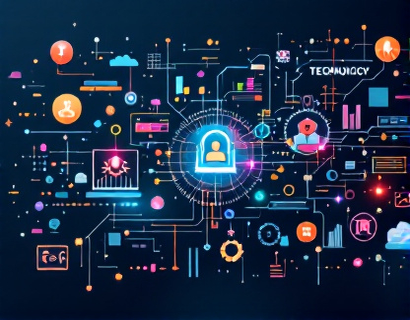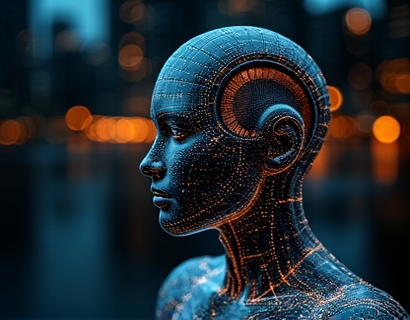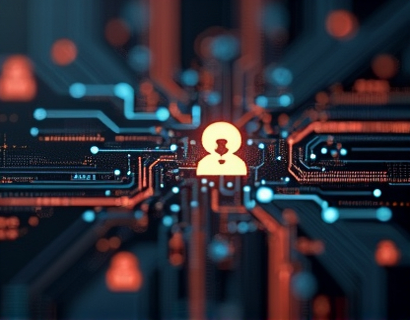Transforming Education with AI-Powered Learning Companions
In the rapidly evolving landscape of education, the integration of artificial intelligence (AI) is revolutionizing the way students and educators access and utilize learning resources. An AI-powered learning companion represents a significant leap forward, offering an instant and personalized gateway to a wealth of study insights and industry knowledge. This innovative approach not only enhances the learning experience but also optimizes the educational journey for greater efficiency and effectiveness.
The core functionality of an AI-driven learning companion lies in its ability to provide real-time, personalized support. By leveraging advanced algorithms and natural language processing, these companions can understand and respond to user queries with precision and speed. Whether a student is seeking clarification on a complex concept, looking for recommendations on study materials, or needing insights into industry trends, the AI companion is equipped to deliver relevant and actionable information instantly.
Personalized Study Resources
One of the most significant advantages of an AI-powered learning companion is its capacity to offer personalized study resources. Traditional learning environments often struggle to cater to the diverse needs of individual students, leading to a one-size-fits-all approach that may not be effective for everyone. With AI, the learning experience is tailored to each user's unique learning style, pace, and preferences.
The AI companion can analyze a student's performance data, identifying strengths and areas for improvement. Based on this analysis, it can recommend customized study materials, such as video tutorials, interactive quizzes, and detailed explanations. This personalized approach ensures that students receive the exact resources they need to grasp difficult concepts and reinforce their understanding.
Real-Time Industry Insights
In addition to academic resources, an AI learning companion can provide real-time insights into various industries, helping students stay ahead of the curve. The rapid pace of technological advancement and market changes means that industry knowledge is constantly evolving. An AI-powered tool can aggregate and synthesize the latest news, trends, and research from multiple sources, presenting them in a digestible format.
For instance, a student interested in the tech industry can receive updates on emerging technologies, key players, and market dynamics. This access to timely and relevant information enables students to make informed decisions about their career paths and stay competitive in their chosen fields. Moreover, educators can use these insights to enrich their teaching, ensuring that the curriculum remains relevant and aligned with industry needs.
Expert Knowledge at Your Fingertips
Another critical feature of an AI learning companion is its ability to connect users with expert knowledge. In many cases, accessing expert insights can be challenging due to time constraints or geographical limitations. An AI-driven platform can bridge this gap by curating content from industry experts, academics, and professionals.
Users can engage in conversations that mimic a dialogue with an expert, asking questions and receiving detailed responses. This interactive approach not only provides valuable knowledge but also simulates the learning experience of working directly with a mentor. Whether it's understanding complex theories, getting advice on research projects, or exploring career opportunities, the AI companion ensures that expert knowledge is readily available.
Enhancing Efficiency and Effectiveness
The integration of AI in education significantly enhances the efficiency and effectiveness of the learning process. By automating routine tasks and providing instant answers to queries, AI companions free up time for more meaningful and in-depth learning activities. Students can focus on applying knowledge rather than searching for information, leading to a more productive and fulfilling educational experience.
For educators, AI tools can streamline administrative tasks such as grading and feedback, allowing more time to be spent on teaching and mentoring. The data-driven insights provided by AI can also help educators identify trends in student performance, enabling them to adjust their teaching strategies and better support their students.
Building a Supportive Learning Community
An AI-powered learning companion fosters a sense of community and collaboration among students and educators. By facilitating seamless access to information and resources, these tools encourage users to engage with each other, share insights, and collaborate on projects. This collaborative environment not only enriches the learning experience but also builds a network of support and knowledge sharing.
For example, students can form study groups based on shared interests or coursework, with the AI companion providing tools for collaboration such as shared document editing, discussion forums, and project management features. Educators can also leverage these platforms to create online classrooms, where they can post resources, assign tasks, and monitor progress in real-time.
Overcoming Learning Barriers
One of the most impactful aspects of AI-powered learning companions is their ability to overcome traditional learning barriers. For students with disabilities, language barriers, or those in regions with limited educational resources, AI can provide equal access to high-quality learning materials and expert knowledge.
For instance, AI can offer text-to-speech functionality for visually impaired students, translate content into multiple languages for non-native speakers, and provide simplified explanations for complex concepts. These features ensure that all students, regardless of their background or circumstances, can benefit from a rich and inclusive learning experience.
Continuous Improvement and Adaptation
The beauty of AI lies in its continuous learning and adaptation capabilities. As users interact with the AI companion, the system collects data and feedback, which are used to refine and improve its performance over time. This iterative process ensures that the AI remains up-to-date with the latest educational trends and user needs, providing increasingly accurate and relevant support.
Moreover, the AI can adapt to different educational contexts, whether it's primary education, higher learning, or professional development. By understanding the specific requirements and challenges of each stage, the AI companion can offer tailored solutions that address the unique needs of each user group.
Future Prospects and Challenges
As AI technology continues to advance, the potential applications in education are vast. Future developments may include more sophisticated natural language understanding, enhanced emotional intelligence, and deeper integration with virtual and augmented reality environments. These advancements could further enrich the learning experience, making it more immersive and interactive.
However, the adoption of AI in education also comes with challenges. Issues such as data privacy, ethical considerations, and the digital divide need to be addressed to ensure that the benefits of AI are accessible to all. Educators, policymakers, and technologists must collaborate to create frameworks that promote responsible AI use in educational settings.
Conclusion
The integration of AI into education represents a transformative shift, offering unprecedented opportunities for personalized learning and enhanced educational outcomes. An AI-powered learning companion serves as a powerful tool, providing instant access to personalized study insights and industry knowledge, thereby optimizing the educational journey for students and educators alike. As this technology continues to evolve, it holds the promise of creating a more inclusive, efficient, and effective learning environment for all.









































